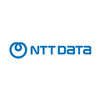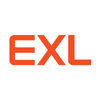6 Elleen Infotech Jobs
PHP Programmer
Elleen Infotech
posted 18d ago
Job Description
A PHP Programmer is responsible for developing, maintaining, and enhancing web applications and systems using the PHP programming language. They play a crucial role in creating dynamic and interactive websites, implementing functionality, and ensuring the efficiency and security of PHP-based solutions. Here is a general job description for a PHP Programmer:Responsibilities:Web Application Development: Develop, test, and deploy PHP-based web applications using modern development frameworks such as Laravel, Symfony, or CodeIgniter. Implement functionality, database integration, and user interfaces based on project requirements.Backend Development: Design and develop server-side logic and APIs using PHP. Build and optimize database structures, queries, and relationships to ensure efficient data retrieval and manipulation. Integrate external APIs and services for data exchange and integration.Frontend Development: Collaborate with frontend developers to implement the user interface (UI) and user experience (UX) aspects of web applications. Utilize HTML, CSS, JavaScript, and frameworks such as jQuery or Vue.js to create responsive and interactive web interfaces.Code Optimization and Performance: Optimize PHP code for improved performance and scalability. Identify and resolve bottlenecks, optimize database queries, and implement caching mechanisms to enhance application speed and responsiveness.Security and Data Protection: Implement security measures and best practices to protect web applications from common vulnerabilities, such as SQL injection, cross-site scripting (XSS), and cross-site request forgery (CSRF). Apply encryption, hashing, and secure authentication techniques to safeguard user data.Bug Fixing and Maintenance: Troubleshoot and resolve technical issues, defects, and bugs in PHP applications. Perform code reviews, identify areas for improvement, and apply fixes and enhancements to ensure application stability and reliability.Testing and Quality Assurance: Develop and execute test plans and scripts to validate the functionality and performance of PHP applications. Conduct unit testing, integration testing, and user acceptance testing to ensure software quality and adherence to specifications.Documentation and Technical Support: Create and maintain technical documentation, including system specifications, user manuals, and API documentation. Provide technical support and assistance to end-users, developers, and stakeholders for PHP applications.Collaboration and Version Control: Collaborate with cross-functional teams, including frontend developers, designers, and project managers, to ensure effective communication and successful project delivery. Utilize version control systems, such as Git, for code management and collaboration.Continuous Learning and Professional Development: Stay updated with the latest PHP frameworks, libraries, and industry trends. Continuously enhance programming skills through self-learning, online resources, and participation in relevant training or conferences.Skills and
Employment Type: Full Time, Permanent
Read full job description What people at Elleen Infotech are saying
What Elleen Infotech employees are saying about work life
based on 2 employees
Flexible timing
Monday to Saturday
International travel
Similar Jobs for you
Share an Interview






























